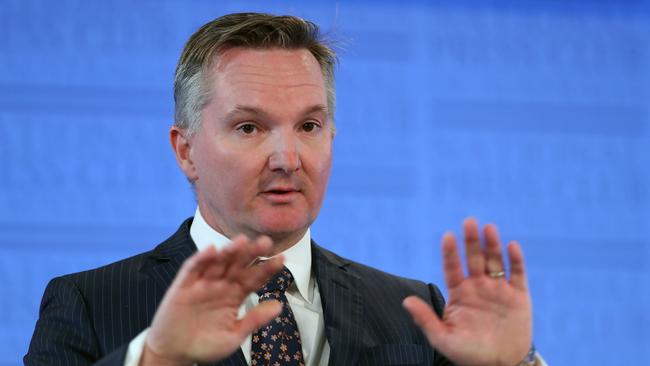
Yesterday, at his final NPC address before this year’s election campaign gets under way, Bowen seemed to lose all interest in the 23.7 per cent cap, dismissing a question about whether he would look to stick to such a rule.
In fact, he didn’t appear to even remember the KPI he set for the Coalition, incorrectly correcting the journalist, suggesting she meant 23.9 per cent — referring to the cap the Coalition set for itself.
Realistically, Bowen couldn’t commit to either cap, because the mix of Labor economic reforms will surely see tax as a percentage of GDP head north, significantly so, because of more tax receipts courtesy of less access to negative gearing, franking credits and higher capital gains taxes.
The government will seek to highlight the higher-taxing ways of Labor time and time again on the election trail, seeking to draw a contrast between the Coalition as the parties of lower taxation, Labor as the party of higher taxes.
Ironically, a quick look at the tax-to-GDP ratios of recent years proves Labor in government has actually done better on this score than the Coalition, but not because they regard themselves as the party of lower taxation.
Tax as a percentage of GDP dipped sharply during the global financial crisis and its aftermath, as low as 19.9 per cent during the 2010-11 financial year.
Of course, spending didn’t follow tax receipts south, which is why debt levels rocketed.
Labor likes to point out that tax-to-GDP has steadily increased while the Coalition has been in power, which is true.
But it is also true that the trend towards growing taxation will accelerate if Labor wins the election.
But will being the party of higher taxes cost Labor at the election? Perhaps not, if voters like the ways in which it intends to spend the extra revenue.
Community attitudes to taxes may have shifted, as voters ask more of their governments and as service delivery becomes an increasing area of responsibility at the federal level.
Peter van Onselen is a professor of politics at the University of Western Australia and
Griffith University




In his first National Press Club address as opposition Treasury spokesman, following the 2013 defeat of the Rudd government, Chris Bowen proposed a challenge for the new Coalition government: “keep taxation as a percentage of GDP, on average, below the Howard/Rudd/Gillard benchmark of 23.7 per cent”.